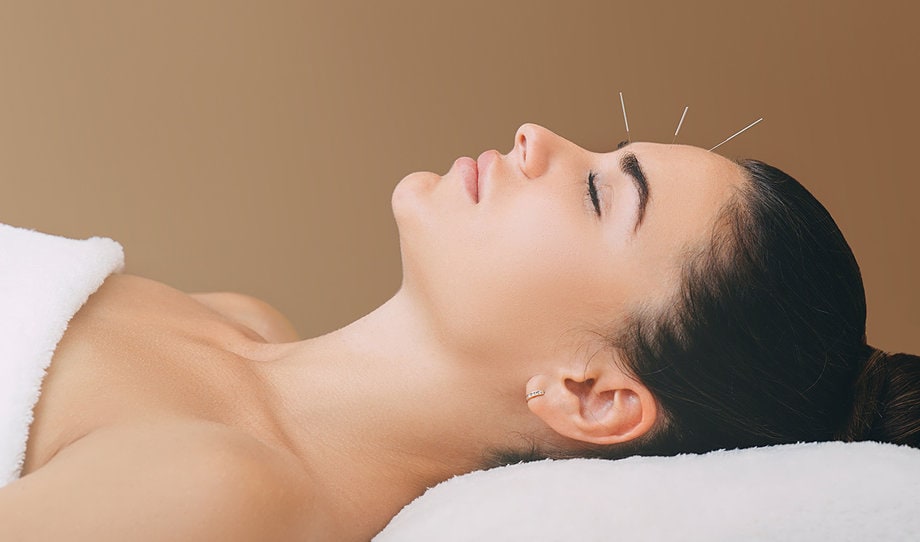Chinese Medicine For Sleep Disorders: Restoring Balance And Promoting Restful Sleep

Sleep disorders can have a significant impact on an individual’s overall well-being and quality of life. Chinese Medicine offers a holistic approach to addressing sleep disturbances by restoring balance and promoting restful sleep.
This ancient medical system, rooted in the principles of Yin and Yang and the flow of Qi energy, views sleep disorders as a reflection of imbalances within the body. Chinese Medicine employs various modalities, including acupuncture, herbal medicine, dietary and lifestyle recommendations, Qi Gong, and Tai Chi, to address the root causes of sleep disturbances and restore harmony.
Acupuncture helps to regulate the flow of Qi, while herbal medicine provides natural remedies to support relaxation and promote restful sleep. Additionally, dietary and lifestyle recommendations cater to individual needs, aiming to improve sleep quality. Qi Gong and Tai Chi practices enhance overall well-being, including sleep patterns.
By adopting sleep hygiene practices, individuals can optimize their sleep environment and establish healthy sleep habits. Seeking professional guidance from a Chinese Medicine practitioner can provide personalized treatment plans to address sleep disorders effectively.
Understanding the Causes of Sleep Disorders
The causes of sleep disorders can be better understood by examining the various factors that disrupt the delicate balance necessary for restful sleep.
One common cause is stress, which can lead to hyperarousal and increased alertness, making it difficult to fall asleep.
Environmental factors such as excessive noise, light, or an uncomfortable sleep environment can also contribute to sleep disturbances.
Additionally, certain medical conditions like sleep apnea or restless leg syndrome can disrupt sleep patterns.
Other factors include lifestyle choices such as irregular sleep schedules, excessive caffeine or alcohol consumption, and the use of electronic devices before bedtime.
Understanding these causes is crucial in order to develop effective treatment strategies that focus on restoring balance and promoting restful sleep.
The Principles of Chinese Medicine
This discussion will focus on the principles of Chinese medicine, specifically the concepts of Yin and Yang balance and Qi flow.
In Chinese medicine, it is believed that health is achieved when there is a harmonious balance between Yin and Yang energies within the body. Yin and Yang are opposing forces that need to be in equilibrium for optimal health.
Additionally, the flow of Qi, or vital energy, is crucial in maintaining good health, as blockages or imbalances in Qi can lead to various health issues.
Yin and Yang Balance
Yin and Yang balance in Chinese medicine is a fundamental concept that underlies the understanding and treatment of sleep disorders.
According to this philosophy, yin and yang are opposing yet complementary forces that exist in all aspects of life, including the body’s internal environment.
In the context of sleep, yin represents the cool, restful, and nourishing aspects, while yang represents the active, stimulating, and waking aspects.
Achieving a harmonious balance between yin and yang is crucial for maintaining optimal sleep patterns.
To grab the attention of the audience, here are three key points related to yin and yang balance in Chinese medicine for sleep disorders:
- Yin and yang imbalance can lead to sleep disruptions and disorders.
- Chinese medicine aims to restore yin and yang balance to promote restful sleep.
- Treatments may include acupuncture, herbal medicine, and lifestyle adjustments to restore harmony between yin and yang.
Qi Flow
Qi flow is a vital concept in traditional Chinese philosophy and plays a crucial role in understanding and treating sleep disruptions. According to Chinese medicine, Qi is the vital life force that flows through the body, maintaining health and balance. When Qi becomes blocked or imbalanced, it can lead to various health issues, including sleep disorders.
In Chinese medicine, the flow of Qi is believed to be influenced by factors such as emotions, diet, and lifestyle. The goal of Chinese medicine for sleep disorders is to restore the smooth flow of Qi and rebalance the body. This can be achieved through various techniques, including acupuncture, herbal medicine, and lifestyle modifications.
By addressing the underlying Qi imbalances, Chinese medicine aims to promote restful sleep and overall well-being.
Acupuncture for Sleep Disorders
Acupuncture is a traditional Chinese medicine practice that has been used for centuries to treat various health conditions, including sleep disorders. When targeting specific points on the body, acupuncture aims to restore the flow of energy and promote balance within the body.
By stimulating these points, acupuncture can induce relaxation and improve sleep quality.
Targeting Specific Points
One effective approach to treating sleep disorders in Chinese medicine involves targeting specific points on the body. Acupuncture, a key component of Chinese medicine, focuses on stimulating specific points along the body’s meridian lines to restore balance and promote restful sleep. These points are believed to be interconnected with various organs and systems in the body, and by targeting them, practitioners aim to alleviate the underlying causes of sleep disorders.
Some commonly targeted points for sleep disorders include the Shenmen, Yin Tang, and Anmian points. The Shenmen point, located on the ear, is believed to calm the mind and reduce anxiety, while the Yin Tang point, located between the eyebrows, is thought to promote relaxation and ease headaches. The Anmian point, located behind the ear, is known to calm the spirit and relieve insomnia.
By stimulating these specific points, Chinese medicine aims to restore balance and improve sleep quality.
Stimulating Relaxation and Sleep
Stimulating relaxation and promoting a state of deep slumber is achieved by targeting specific points on the body’s meridian lines in Chinese medicine. Acupressure and acupuncture techniques are commonly used to stimulate these points and restore balance in the body.
In Chinese medicine, sleep disorders are often believed to be caused by an imbalance in the body’s energy flow. By applying pressure or inserting thin needles into specific points, the flow of energy can be regulated and sleep can be improved.
Some of the commonly targeted points for promoting sleep include the Shenmen point, located on the ear, which is believed to calm the mind and reduce anxiety, and the Anmian point, located behind the ear, which is known for its sedative effects.
These techniques aim to induce relaxation and enhance the quality of sleep in individuals with sleep disorders.
Herbal Medicine for Restful Sleep
Herbal medicine offers a potential solution for individuals struggling with sleep disorders by promoting restful sleep and restoring balance. Chinese herbal medicine, with its long history and holistic approach, aims to address the underlying imbalances that contribute to sleep disturbances.
Several herbs have been traditionally used to calm the mind, relax the body, and promote better sleep. For example, Suan Zao Ren (Ziziphus jujuba) is commonly used to nourish the heart and liver, calm the spirit, and alleviate insomnia. Bai Zi Ren (Platycladus orientalis) is believed to tonify the heart and calm the mind, helping individuals fall asleep more easily. Additionally, herbs such as Fu Ling (Poria cocos) and Ye Jiao Teng (Polygonum multiflorum) may be used to strengthen the spleen and nourish the blood, addressing underlying imbalances that contribute to sleep disorders.
While more research is needed, herbal medicine shows promise in improving sleep quality and restoring balance.
Dietary and Lifestyle Recommendations
Dietary and lifestyle recommendations play a crucial role in addressing sleep difficulties and promoting overall well-being. According to Chinese medicine, maintaining a balanced diet is essential for achieving restful sleep. It is advised to consume foods that have a calming effect on the body, such as warm and cooked meals, while avoiding stimulating foods like caffeine, spicy foods, and alcohol.
Additionally, it is recommended to establish a regular sleep routine by going to bed and waking up at consistent times. Engaging in regular exercise, particularly in the morning or early afternoon, can also contribute to better sleep quality.
Other lifestyle recommendations include creating a comfortable sleeping environment, practicing relaxation techniques before bedtime, and managing stress levels effectively.
By incorporating these dietary and lifestyle changes, individuals can restore balance and promote restful sleep.
Qi Gong and Tai Chi for Sleep Improvement
This discussion will focus on the use of Qi Gong and Tai Chi for sleep improvement.
Qi Gong and Tai Chi are ancient Chinese practices that aim to balance the flow of energy in the body, known as Qi, through gentle movements and deep breathing exercises.
These practices have been found to promote relaxation and mental clarity, making them potentially beneficial for individuals experiencing sleep disorders.
Balancing Energy Flow
Balancing the flow of energy is a crucial component in Chinese medicine for addressing sleep disorders and promoting a restful night’s sleep. According to Chinese medicine principles, sleep disorders are often attributed to an imbalance or disruption in the flow of energy, known as Qi, throughout the body.
Qi Gong and Tai Chi exercises are commonly used to restore and harmonize this energy flow, leading to improved sleep quality. These practices involve slow, gentle movements, deep breathing, and focused meditation, which help to activate and regulate Qi circulation. By stimulating the body’s energy channels and removing blockages, Qi Gong and Tai Chi promote relaxation, reduce stress, and enhance sleep efficiency.
Additionally, these exercises also strengthen the body’s overall energy reserves, making it easier to maintain a balanced and restful state throughout the night.
Promoting Relaxation and Mental Clarity
The cultivation of relaxation and mental clarity is paramount in addressing sleep-related challenges and fostering a tranquil state conducive to restorative sleep. Chinese medicine offers various approaches to promoting relaxation and mental clarity. These methods aim to calm the mind and release tension, allowing for a more peaceful and restful sleep.
Some of the techniques used in Chinese medicine for this purpose include:
- Acupuncture: This traditional Chinese therapy involves the insertion of thin needles at specific points on the body to stimulate the flow of energy and promote relaxation.
- Herbal remedies: Chinese herbal medicine utilizes a combination of plants and minerals to restore balance and promote mental clarity, reducing stress and anxiety that can interfere with sleep.
- Qigong and Tai Chi: These mind-body practices incorporate gentle movements, deep breathing, and meditation to calm the mind and enhance mental clarity, promoting better sleep.
By incorporating these techniques into a comprehensive treatment plan, individuals can improve their sleep quality and overall well-being.
Sleep Hygiene Practices in Chinese Medicine
This discussion focuses on two important sleep hygiene practices in Chinese medicine:
- Creating a peaceful environment involves ensuring that the bedroom is free from distractions and promoting a calm and serene atmosphere.
- Establishing regular sleep patterns emphasizes the importance of going to bed and waking up at consistent times, allowing the body to develop a natural sleep-wake cycle.
These practices are believed to restore balance and promote restful sleep in Chinese medicine.
Creating a Peaceful Environment
To foster a tranquil atmosphere conducive to restful sleep, it is essential to cultivate a serene environment that promotes relaxation and peace. Creating a peaceful environment involves certain practices in Chinese medicine that can help individuals achieve better sleep quality. These practices include:
- Removing electronic devices from the bedroom to reduce distractions and electromagnetic radiation.
- Using blackout curtains or eye masks to create a dark sleeping environment.
- Keeping the bedroom at a cool temperature, between 60-67 degrees Fahrenheit, to promote a comfortable sleep environment.
- Incorporating soothing scents, such as lavender or chamomile, through essential oils or herbal sachets, to promote relaxation and calmness.
By implementing these practices, individuals can create a peaceful environment that supports their sleep health and contributes to a more restful and rejuvenating sleep experience.
Establishing Regular Sleep Patterns
To further enhance the effectiveness of Chinese medicine in promoting restful sleep, it is crucial to establish regular sleep patterns. Irregular sleep patterns disrupt the body’s natural circadian rhythm, leading to sleep disorders. Chinese medicine emphasizes the importance of maintaining a consistent sleep schedule to restore balance and facilitate deep, rejuvenating sleep.
This involves going to bed and waking up at the same time every day, even on weekends. By adhering to a regular sleep routine, the body’s internal clock is regulated, promoting the release of melatonin, a hormone that regulates sleep. Additionally, establishing regular sleep patterns allows the body to anticipate and prepare for sleep, making it easier to fall asleep and maintain quality sleep throughout the night.
Incorporating this aspect of Chinese medicine into one’s daily routine can significantly improve sleep quality and overall well-being.
Seeking Professional Guidance in Chinese Medicine for Sleep Disorders
Seeking professional guidance in Chinese medicine for sleep disorders involves consulting experienced practitioners who can provide personalized treatment plans tailored to individual needs. These practitioners have extensive knowledge of the principles and techniques of traditional Chinese medicine (TCM) and understand the importance of restoring balance in the body to promote restful sleep. By assessing the individual’s specific symptoms, medical history, and lifestyle factors, the practitioner can develop a comprehensive treatment plan that may include acupuncture, herbal medicine, dietary adjustments, and lifestyle recommendations. The table below illustrates some common Chinese medicine approaches for sleep disorders:
| Chinese Medicine Approach | Description |
|---|---|
| Acupuncture | The insertion of thin needles at specific points on the body to stimulate the flow of Qi (vital energy) and promote relaxation. |
| Herbal Medicine | The use of specific herbs and formulas to address imbalances and regulate the body’s energy flow. |
| Dietary Adjustments | Recommendations for foods that support healthy sleep and balance the body’s Yin and Yang energies. |
| Lifestyle Recommendations | Suggestions for improving sleep hygiene, managing stress, and incorporating relaxation techniques into daily routines. |
Consulting a professional in Chinese medicine for sleep disorders can provide individuals with a holistic and personalized approach to address their specific sleep issues and promote overall well-being.
Frequently Asked Questions
Are there any specific exercises or stretches that can be done before bed to promote better sleep according to Chinese medicine?
Exercises or stretches before bed to promote better sleep according to Chinese medicine may include gentle stretching, qigong, or tai chi. These practices aim to restore balance and improve energy flow in the body, potentially aiding in a more restful sleep.
What are some common lifestyle habits that may contribute to sleep disorders, and how can they be changed?
Common lifestyle habits such as irregular sleep schedules, excessive caffeine consumption, and high stress levels can contribute to sleep disorders. These habits can be changed by establishing a consistent sleep routine, limiting caffeine intake, and practicing stress management techniques.
Can Chinese medicine effectively treat sleep disorders in children?
Chinese medicine has been found to effectively treat sleep disorders in children. Research studies have shown that acupuncture, herbal medicine, and other traditional Chinese therapies can help restore balance and promote restful sleep in pediatric patients.
Are there any potential side effects or risks associated with using herbal medicine for sleep disorders?
Potential side effects and risks associated with herbal medicine for sleep disorders include allergic reactions, interactions with other medications, and adverse effects on liver or kidney function. Further research is needed to fully understand the safety profile of these treatments.
How long does it typically take to see improvements in sleep quality when undergoing acupuncture treatments for sleep disorders?
Improvements in sleep quality when undergoing acupuncture treatments for sleep disorders can vary. It typically takes several weeks to months to see noticeable changes, as acupuncture works gradually to restore balance and promote restful sleep.








